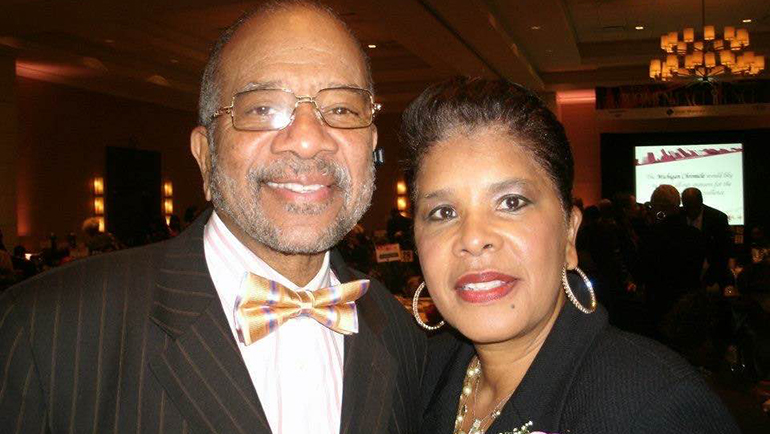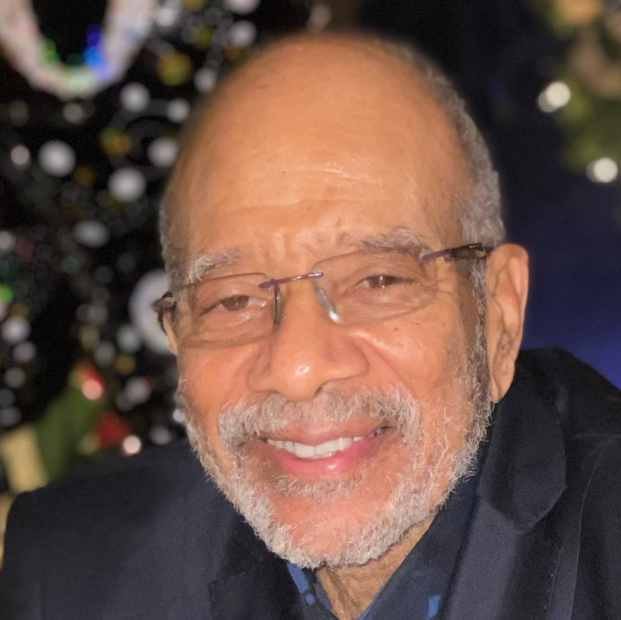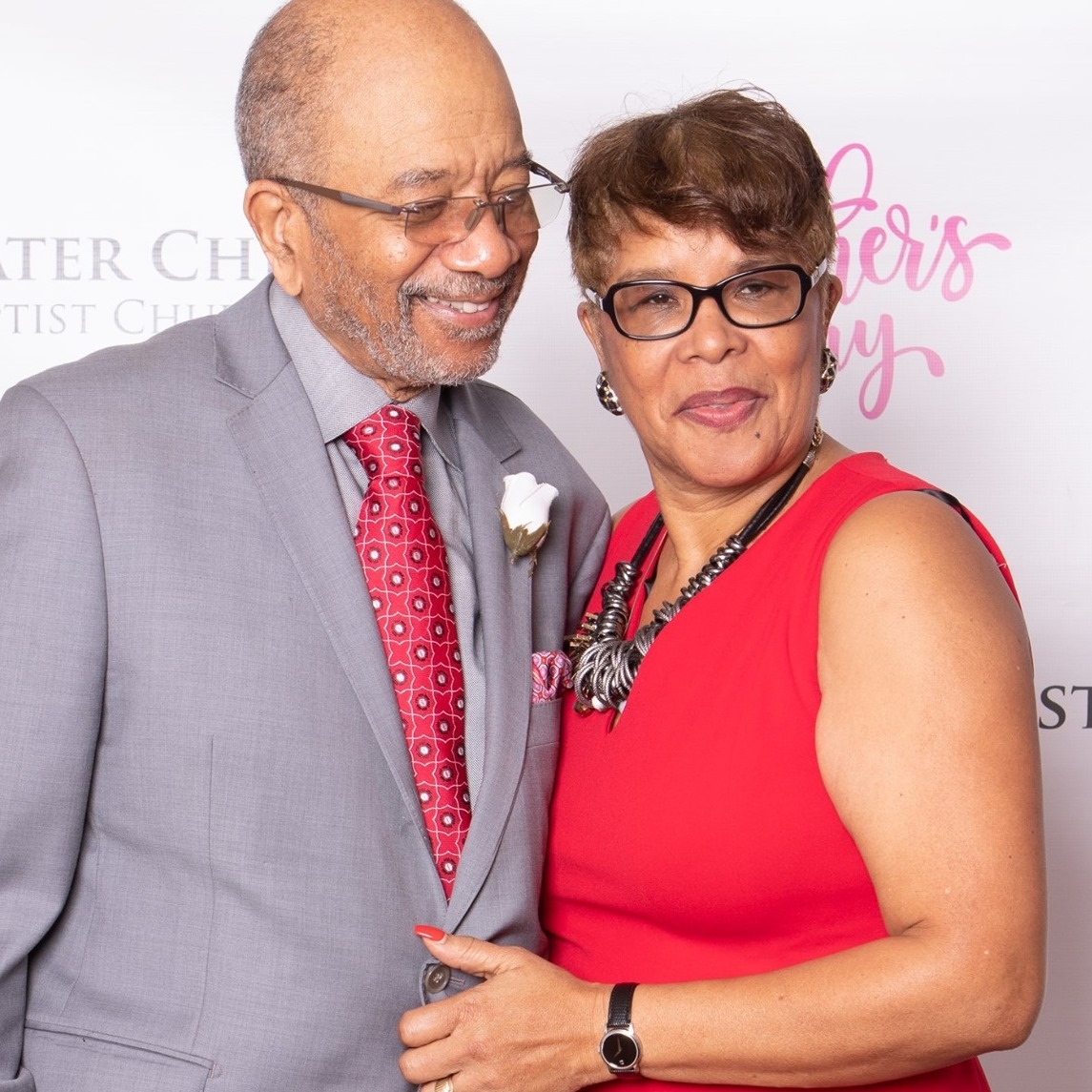
V. Lonnie Peek Jr. had barely started classes as a Wayne State student before he began making university history.
A grad student pursuing his master’s in social work, Peek had been attending for all of one day in the fall of 1967 when he stumbled across a mass of protestors congealing in a building atrium on campus. “It was the first day of classes for me,” recalled Peek during a recent Zoom conversation. “I had gone over to the School of Social Work, and in that atrium was a protest by community folks. They were disturbed at Wayne State because Wayne State was doing a community symposium, but none of the community folks had been contacted. They were pissed off. There were literally about 150 folks. I said, ‘Whoa, wow, this is deep.’”

Peek admitted he didn’t know much about the protest, but as a young man whose childhood years in New Jersey had been deeply marked by racism, he understood well the need for an organized fight against marginalization. So, he stood amid the angry bodies and listened. Before long, the media showed up, and when a reporter asked to speak to someone who represented the university’s Black students, another student pointed at Peek. “He does,” the student declared.
At first, Peek was bewildered. He didn’t lead anything or anyone. But seconds later, he realized an opportunity had been presented.
“Now, all the news focuses on me, asking my name and stuff,” Peek remembered. “Then one of them says, ‘Who do you represent?’ I had to think fast! I couldn’t say, ‘I don’t know.’ So, I told him, ‘I represent the Association of Black Students.’ Right then and there, in that atrium, that was the birth of ABS.”
That seed quickly took root on campus as Peek and his friends set about spreading word of the new group.
“When I mentioned to the dean of students what I’d done, he just looked at me and said, ‘Well, you better get to work.’ So, I did. I went out with the folks I knew, put up flyers. We had a meeting in State Hall about two weeks later, and, at that meeting, there were easily 100 students,” he recalled. “I laid out ABS, some things we wanted to do, the structure of the organization, and they all agreed. About six or seven months later, we had our own symposium and series of workshops, and brought in all the community members, all the militants. Even Coleman Young, who was a state senator at the time, showed up.”
More than a half-century later, the group that started almost as a knee-jerk response from Peek lives on, having amassed a decades-long legacy of struggle and activism that has sparked significant change on campus and in the surrounding community. As the organization approaches it 55th anniversary later this year, the legacy of the erstwhile Association of Black Students — the group switched its name to the Black Student Union in the 2000s — continues to grow. From the group’s drives to provide potable water to Flint residents during the city’s recent water crisis to its calls for more support resources for Black students, the BSU continues to fight for the kind of social change that Peek, who recently turned 80 years old, envisioned ABS taking on back when he dreamed up the whole thing.

Interestingly, Peek himself has rejoined that fight, recently signing on to serve as an advisor to the Black Student Union in the wake of a series of demonstrations against racism on campus last summer. Peek, who runs a project management consulting company with wife Eunice, said he was recruited last year by WSU President M. Roy Wilson in hopes that BSU students — whose protests dovetailed with national anti-racism movements sparked, among other things, by the killing of George Floyd — would benefit from Peek’s rich history of addressing social justice.
"I see Roy a lot because we travel in the same circles so he reached out to me," said Peek. "I wanted to help."
An ordained minister and assistant pastor at Greater Christ Baptist Church in Detroit, Peek has been nothing short of a fixture in local politics since his time with the Association of Black Students, working for more than 50 years with an array of Detroit political figures from across the ideological spectrum, from militants like Black Power pastor Albert Cleage to more mainline Democrats such as Coleman A. Young. He’s worked alongside historical titans such as John Conyers and Rosa Parks.
“Conyers requested to Dean Sellers that I do my student placement within his office. That is where I met with Rosa Parks, who worked for Conyers,” Peek said. “Can you imagine working with Rosa Parks every day? Mind boggling.”
Peek has also been embraced by institutions as varied as the Council of Baptist Pastors, New Detroit, the Belle Isle Citizen Advisory Board and the Detroit Riverfront Conservancy. All along the way, the man who used to describe himself as WSU’s “campus militant” has urged racial equality and justice.
***
Those calls didn’t begin in Detroit, though. According to Peek, his work started back when he was a young man growing up in a racially riven New Jersey. There, he said, is where he first learned to resist racial bias.
“I was a student at Middletown High School in New Jersey,” said Peek, flashing back. “And I'm dealing with my counselor, named Mr. Hopkins, a white man. I tell him that I'm going to apply for college. He leans over and he says, ‘Lonnie, boys like you don't go to college.’
“I says, ‘What?’
“He says, ‘No, boys like you, they get a trade. You learn to use your hands.’
“I went home and told my parents. They did everything but curse. They went off. But I proceeded on.”
Peek said that when he started to receive acceptance letters from colleges, he marched right back into his counselor’s office and showed him all the correspondence. “I says, ‘Mr. Hopkins, you say boys like me don't go to college. Yes, we do.’”
Peek enrolled months later at West Virginia State University, where he earned his bachelor’s. Afterward, he enrolled in ROTC and was commissioned as a 2nd lieutenant in the Army. “My father, Rev. Vassie L. Peek, had always wanted me to be an officer in the Army. That made him proud.”
Even as a serviceman in the early 1960s, though, Peek said, he was still grappling with racism.
“I had to report to Fort Benning, Georgia,” he recalled. “So, I drove there. Stopped on the way to get some gas, and I asked for the bathroom. They said, ‘Around the back.’ I go in the bathroom, got my uniform on, and little lieutenant bars. These five, big burly white guys come in the bathroom. ‘N-----, what you doing in this white man's bathroom?’ I'm totally in shock. ‘You better get your blankety- blankety-blank out of here.’ So, I graciously left. That had an impact on me relative to racism, because here I am, willing to fight for our country and your asses, and y'all won't let me pee because I'm black.”
Peek said he not only never forgot the slights, but, as the years progressed, used them as fuel to speak out even louder against discrimination. Creating the Association of Black Students at Wayne State allowed him to amplify that voice and, with it, Black students’ influence. And Peek tried to use that influence as often, and positively, as he could. For instance, not long after starting the group, Peek and his colleagues convinced the university to create WSU’s first Center for Black Studies (the forerunner of the current Department of African American Studies, which itself was created following a 1989 protest by the ABS).
“The university president then was William Keast, and he was supportive,” recalled Peek. “We got along because I learned in life that you don’t always have to be confrontational. Dr. Keast and I formed a good working and personal relationship.”
Then there was the time in 1968, Peek recalled, that he and other ABS students had to fight for the release of a young Ken Cockrel Sr., who’d been unfairly arrested after arguing with a cop.
“One day, Kenny gets in a pissing contest with the police, and they said, ‘I'm going to show you who we are.’ So, they locked Kenny up, man, and it goes throughout the whole campus: The police have got Kenny Cockrel. They said, ‘Lonnie, what are we going to do?’ I said, ‘Let's go to the police department.’ I would say it was 500 students. All of Woodward was blocked up. During that era, the 1960s, the Black students in Detroit were in the vanguard of what was happening because we had masses.”
Cockrel, he said, was released within 20 minutes of their arrival.
Perhaps the most indelible memory for Peek, though, was the time he and the ABS had to address students on campus in the wake of the assassination of Martin Luther King Jr. in April 1968.
“I’ll never forget that,” said Peek. “Students all came to State Hall, 500, 600. I don't know how many. I came in and they says, ‘Well, Lonnie, you've got to say something. What are we going to do? I mean, they killed Martin Luther King.’ This was probably one of the most anxious moments of my life. Now I've got all these students, they want to go out and just do stupid stuff. I stood up on the table and I says, I talked about Martin Luther King and what he meant to us, and the killing, but then I says, ‘Look here, there's no reason for us to running out in the streets, raising hell, burning, tearing stuff down. They have tanks. We don't have tanks, so what I recommend is that we go away and organize some type of a program that would lift up Martin Luther King's life.’
“They got really quiet, and one of them says, ‘You don't want us to go to the streets?’ I says, ‘No, because that is not a smart move.’ They dispersed. That was one of the most anxious moments of my life, because people, when you're in a leadership position, people look for you to lead. I had to speak some wisdom, and I hope that I did.”
***
Decades later, Peek still hopes to bring wisdom, reason and strategy to bear, now in his advisory role with the Black Student Union. He said President Wilson asked him to work with the group in hopes of forging stronger ties between BSU, the administration and the community at large. “I get a call from Roy (during the student demonstrations in 2021), and he says, ‘Hey, can you come and help us based upon your history and experience?’ So, I signed on.”
Peek said the group had been in “transition mode” for a few months, as some leaders graduated and some staff advisors moved on. But Peek said he’s grown fond of the current crop of student leaders and looks forward to helping them honor the mission that he plotted out for the Association of Black Students 55 years ago.
“I think we accomplished some things,” he said. “I think the Black Student Union can now better identify an issue or issues that not only benefit the Black students here but benefit the community that they serve.”
Tackling those issues, Peek said, is precisely why he saw the need for the ABS in 1967. And it’s why the group remains critical now.
“There's always going to be a need for a Black student organization, just like there's always going to be a need for the NAACP,” he explained. “Racism will never go away. It will just morph into something else. From a Black perspective, you've got to be able to deal with that. And you aren’t just based on campus. You're out in the community. That's one of the things that we had going for us. We were in the community and because of that, we had relationships. I think the Black students here have an opportunity to have relationships with key Detroiters, to help them figure out what they can do. There will always be a need for a Black student organization. Always.”
